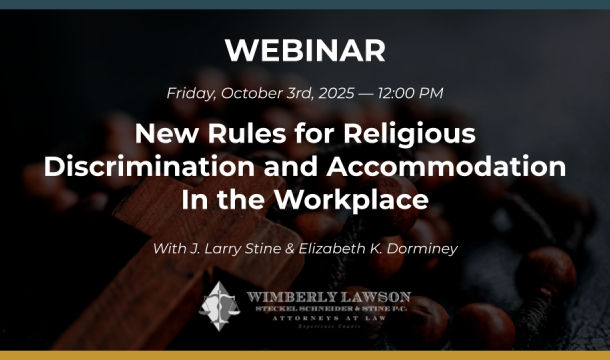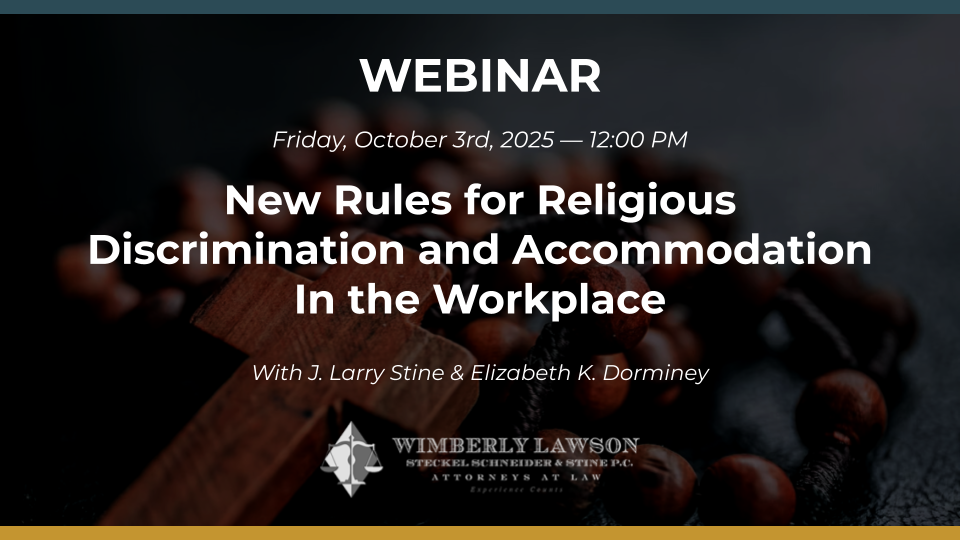Supreme Court Green-Lights Mandatory Arbitration Clauses, Forestalling Class Actions: Could Be Good News For Employers
Will a mandatory agreement to submit disputes to one-on-one arbitration, bypassing class actions, hold up in court? The Supreme Court just said “yes” in a case involving credit cards – and this could be very significant news for employers who want to ensure that disputes with employees are handled confidentially, one at a time, rather than through protracted (and expensive) class actions in court.
In American Express v. Italian Colors Restaurant, the restaurant wanted to accept American Express credit cards for payment. To do that, it had to enter into an agreement with the company that contained two important conditions. First, any dispute would have to be settled in one-on-one arbitration: no class actions allowed. Second, if it wanted to take American Express credit cards, it also had to agree to take the company’s debit cards. Retailers must pay high fees for both privileges, and the fees for debit card purchases are particularly high.
The restaurant and a number of other merchants decided to sue American Express, claiming that the debit card requirement was an illegal “tying” arrangement that violated the antitrust laws. But since all of the merchants had signed the one-on-one arbitration agreement as a condition of accepting the cards, American Express said they couldn’t file a lawsuit, let alone a class action. The trial court agreed with American Express and dismissed the case, but the Court of Appeals agreed with the merchants and reversed, in part because enforcing the one-on-one arbitration requirement would make it prohibitively expensive to litigate the antitrust claims. American Express asked the Supreme Court for review.
The Supreme Court came down squarely in favor of enforcing the arbitration agreement between American Express and the merchants. Justice Scalia, writing for the majority, found that abiding by the agreement between the parties was more important than any other consideration (such as enforcing the antitrust laws). Italian Colors had signed an agreement with American Express that precluded class actions, and was bound by its terms.
The American Express decision is consistent with the Court’s other recent class action decisions, Dukes v. Wal-Mart and Comcast, which focused on the necessity to look at injuries and damages on an individual level rather than engaging experts to argue collectively. Class actions are where the big money is in litigation, although less for the class members, who often receive coupons entitling them to discounts from wrongdoing retailers, than for the lawyers, who routinely collect 7-or 8-figure fees. The expense of defending a class action, and the risk of financial ruin if you lose, often all but force a company to settle, even if they believe they would win in the end.
So, what does this mean for employers? Potentially, a lot. All three of these Supreme Court decisions make it more difficult for litigants to bring class action claims in the future. What the American Express decision adds to the mix is that an agreement to arbitrate disputes one-on-one, rather than through a class action, will be honored. Employee-rights organizations will protest, but employers could require the same sort of agreements as a condition of employment, thereby protecting themselves from exposure to class action suits for back wages, discrimination, or other alleged violations. If you don’t think that will be important, just ask any employer who’s been on the receiving end of a class action.
Questions? Need more information? Contact Larry Stine at (404)365-0900 or jls@wimlaw.com; or Elizabeth Dorminey at bdorminy@bellsouth.net.
Related Content
Get Email Updates
Recent Content

Trump Nominates Appointments to NLRB and EEOC but Policy Changes Likely to Be Delayed

DOL Launches Self-Audit Programs Designed to Help Employers Improve Compliance

DOL Must Release EEO-1 Reports to the Public under Open Records Laws

Current Advice on Active-Shooter Situations

New Policy for Federal Workers and Religious Expressions



